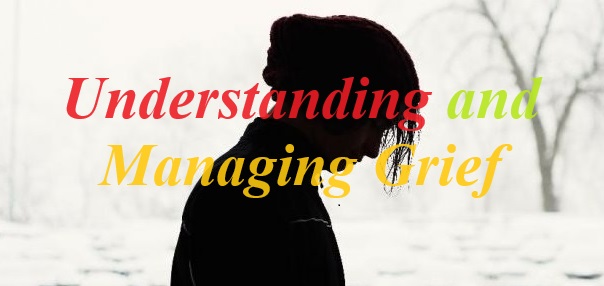Understanding and Managing Grief

Understanding and Managing Grief
Grief
Have you ever wondered how much pleasure our nails can give us?
No one in the history of the human race would have thought about that question unless they had heard it before.
We do not overly think about our nails.
However, how much potential do the nails have to cause us pain?
We have all slammed our fingers on the edge of a door at some point in our lives and we know it’s excruciating pain.
Pain consumes our minds more than pleasure.
Heartbreak is a type of grief.
- For anyone who has gone through it with a romantic partner, friendship, or even heartbreak from losing a family member, will know just by reading this sentence the pain involved.
- It feels as if our heart has been ripped out of our body as we lose someone, we care about more than we care about ourselves.
- These emotions we feel at this point are normal.
- It’s our mind’s natural reaction to being thrown into an unfamiliar phase of life and it’s okay to feel the way we do.
We are meant to feel pain.
- We are not only meant to go through it but we are also meant to grow through it.
- However, this growth takes time.
- Moving on from this pain can take time.
- People who are physically fit with no aches and pains but chronically depressed and grief-stricken, especially when they have no one to be by their side.
- It is their grief that can disrupt their physical health affecting their sleep, eating, and cognitive ability.
- The emotions that people who are grieving experience can creep up on them over time.
- Shock, guilt, anger, disbelief, and deep sadness are some of them.
- The greater the loss, the more intense the grief.
- The most intense type of grief is often the loss of a loved one, but as we have seen, heartbreak can also cause pain along with losing a job, retirement, miscarriage, and losing a cherished dream.
The process of grieving takes time; we cannot rush the process.
The experience is different for different people and depends on several factors, including;
- how close we were to the person we lost,
- our experiences of loss,
- our personality,
- our support system,
- and our coping mechanisms.
We have to actively work on our healing.
- Simply ignoring the pain and distracting ourselves will only make things worse in the future.
- The emotions we experience when grieving are common to many going through similar situations.
- When we lose a relationship, we may feel lonely, frightened, and miserable.
- We may cry as a result, which is a normal response, but we may not, which is also a normal response for people.
- People may process grief in different ways and that is okay to witness.
- Not everyone will express emotions like we do and that also has to be accepted.
- We cannot expect everyone to cry like us as they may not hold the same relationship with the person we have lost.
- Accepting that something has happened is different from forgetting it happened.
- We can move on from a situation, but still cherish the person who was in our lives and the lessons they taught us.
- This memory can help us become stronger.
How to deal with grief
There are two types of people:
- people who will isolate and withdraw into their shells when dealing with grief
- and people who want to share their feelings with everyone they meet.
The key is to look for one-on-one support from people who care about us and those who are experts in helping people through the grieving process.
- That support may come from family and friends.
- Being strong means asking for help, not trying to do everything ourselves.
- They could be a shoulder to cry on and give emotional support, but they could also help with practical arrangements such as helping us move home if we have had a relationship breakdown or a funeral arrangement if we have lost a loved one.
- It is important to know that people who have never experienced grief may not be so good at comforting us.
- They may say or do the wrong things at times, but we should try to overlook that.
- The fact is that if they are there, they care.
- We should not isolate ourselves.
Many people find comfort in their faith.
- Although a symptom of grief can be to blame our spiritual tradition, many might find peace through mourning rituals, such as chanting, singing, and praying.
- Talking to a senior member of our spiritual community, one who understands grief and loss, can help us make sense of the devasting situation.
- There may even be a support group that we can join to help share our sorrow with like-minded individuals.
- if this is not providing us solace or we need to seek additional help, there is no shame in visiting a mental health professional for grief counselling.
- This is their daily role, which they are experienced in.
- They can help us healthily work through our grief.
As we look outwards, it is also important to look inward when we are grieving.
- Taking care of ourselves is crucial at these low times in life as our energy levels may already be lower due to the loss we are going through.
- One thing to know is that pain will never last forever.
- As mentioned, the mind cannot take emotional pain forever.
- ‘Everything passes by.
- We are witnesses of all this.
- We are the perceivers.
- Life comes and goes.
- Happiness comes and goes.
- Sorrow comes and goes.’
- In the same way, our pain from grief will also pass.
Just as summer turns to winter and winter turns to summer, our happiness and distress also change.
- We can try to suppress the pain we are feeling from grief, but it will be expressed sooner or later.
- If we want to heal, we have to acknowledge the pain, otherwise, we can risk becoming clinically depressed, dependent on harmful substances, or having other health issues.
- Often in times of grief, it is difficult to imagine feeling better; we cannot see the light at the end of the tunnel.
- However, by reflecting on all our past experiences when we came through that tunnel, we can see that there was always a light at the end, regardless of whether it was visible to us at every stage or not.
- Time does heal us, and though we may not believe it in the moment, it will get better.
Other ways of handling grief
- Another way that we can handle our grief ourselves is by expressing our feelings creatively.
- Writing a grief journal, painting, singing, or even getting involved with a cause that was close to the person we’ve lost can help.
- Taking up a hobby that encourages support, such as team sports or learning a new skill, can also be something that can aid the grieving process.
- Exercising regularly and planning for ‘grief triggers’, such as weddings, anniversaries, or birthdays, are other tools to help us grieve healthily.
One thing that many people say is the frustration they feel when people tell them to ‘move on’ or ‘get over it’.
- It is important to not be disheartened by this bad advice.
- Most people have our best interests at heart and may want us to ‘move on’ as they think that that will make us happy.
- However, we mustn’t let others dictate our emotions.
- If we need to cry, we should.
- If we need to go through our sadness, we should.
- If we need to scream, shout or yell, that’s fine too.
- We all heal at our own pace.
Join us for more through this link
https://chat.whatsapp.com/Bt7QvtyljSPHCa7y17zLYP








